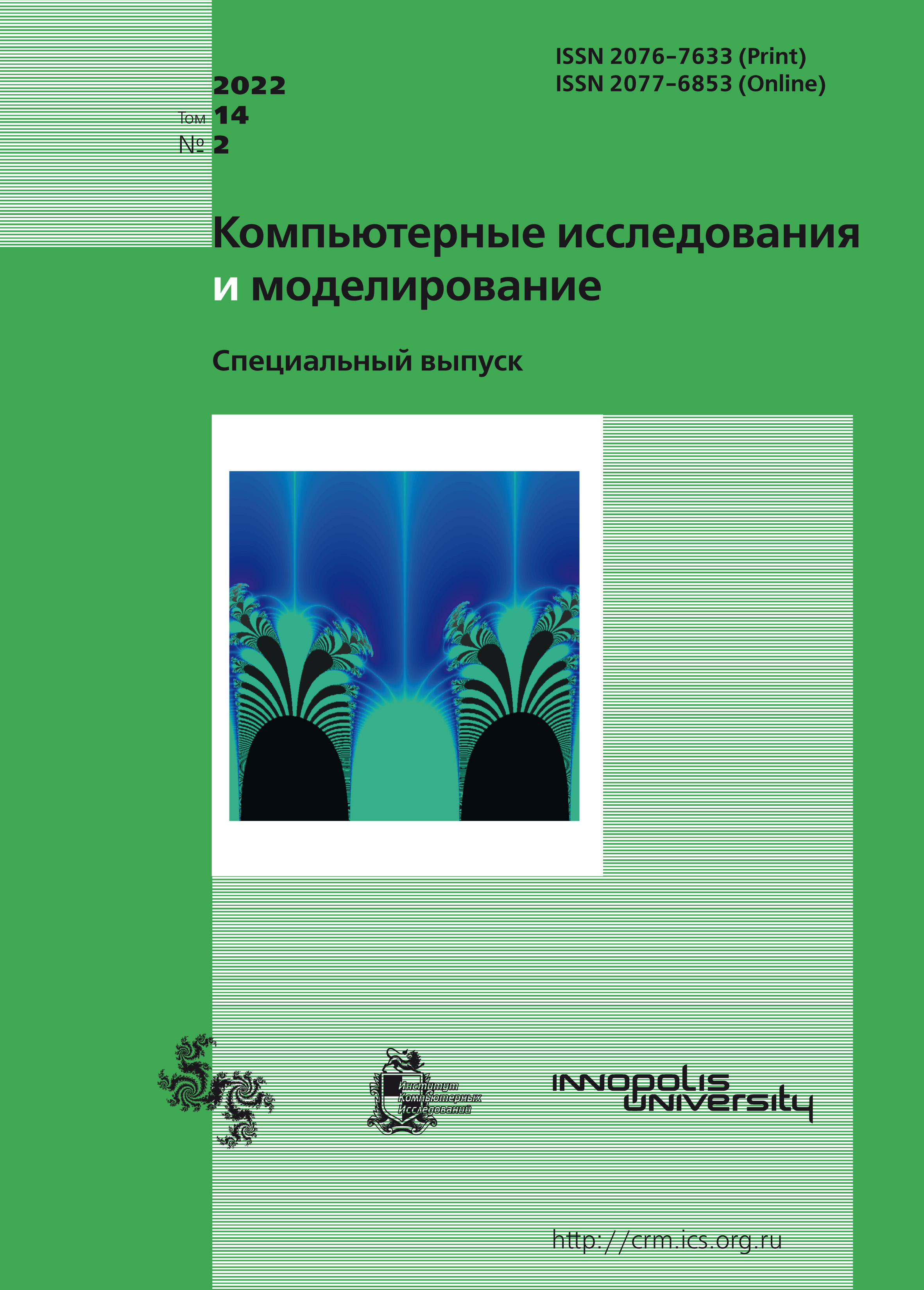All issues
- 2025 Vol. 17
- 2024 Vol. 16
- 2023 Vol. 15
- 2022 Vol. 14
- 2021 Vol. 13
- 2020 Vol. 12
- 2019 Vol. 11
- 2018 Vol. 10
- 2017 Vol. 9
- 2016 Vol. 8
- 2015 Vol. 7
- 2014 Vol. 6
- 2013 Vol. 5
- 2012 Vol. 4
- 2011 Vol. 3
- 2010 Vol. 2
- 2009 Vol. 1
Subgradient methods for non-smooth optimization problems with some relaxation of sharp minimum
 pdf (498K)
pdf (498K)
Non-smooth optimization often arises in many applied problems. The issues of developing efficient computational procedures for such problems in high-dimensional spaces are very topical. First-order methods (subgradient methods) are well applicable here, but in fairly general situations they lead to low speed guarantees for large-scale problems. One of the approaches to this type of problem can be to identify a subclass of non-smooth problems that allow relatively optimistic results on the rate of convergence. For example, one of the options for additional assumptions can be the condition of a sharp minimum, proposed in the late 1960s by B. T. Polyak. In the case of the availability of information about the minimal value of the function for Lipschitz-continuous problems with a sharp minimum, it turned out to be possible to propose a subgradient method with a Polyak step-size, which guarantees a linear rate of convergence in the argument. This approach made it possible to cover a number of important applied problems (for example, the problem of projecting onto a convex compact set). However, both the condition of the availability of the minimal value of the function and the condition of a sharp minimum itself look rather restrictive. In this regard, in this paper, we propose a generalized condition for a sharp minimum, somewhat similar to the inexact oracle proposed recently by Devolder – Glineur – Nesterov. The proposed approach makes it possible to extend the class of applicability of subgradient methods with the Polyak step-size, to the situation of inexact information about the value of the minimum, as well as the unknown Lipschitz constant of the objective function. Moreover, the use of local analogs of the global characteristics of the objective function makes it possible to apply the results of this type to wider classes of problems. We show the possibility of applying the proposed approach to strongly convex nonsmooth problems, also, we make an experimental comparison with the known optimal subgradient method for such a class of problems. Moreover, there were obtained some results connected to the applicability of the proposed technique to some types of problems with convexity relaxations: the recently proposed notion of weak $\beta$-quasi-convexity and ordinary quasiconvexity. Also in the paper, we study a generalization of the described technique to the situation with the assumption that the $\delta$-subgradient of the objective function is available instead of the usual subgradient. For one of the considered methods, conditions are found under which, in practice, it is possible to escape the projection of the considered iterative sequence onto the feasible set of the problem.
Copyright © 2022 Ablaev S.S., Makarenko D.V., Stonyakin F.S., Alkousa M.S., Baran I.V.
Indexed in Scopus
Full-text version of the journal is also available on the web site of the scientific electronic library eLIBRARY.RU
The journal is included in the Russian Science Citation Index
The journal is included in the RSCI
International Interdisciplinary Conference "Mathematics. Computing. Education"






